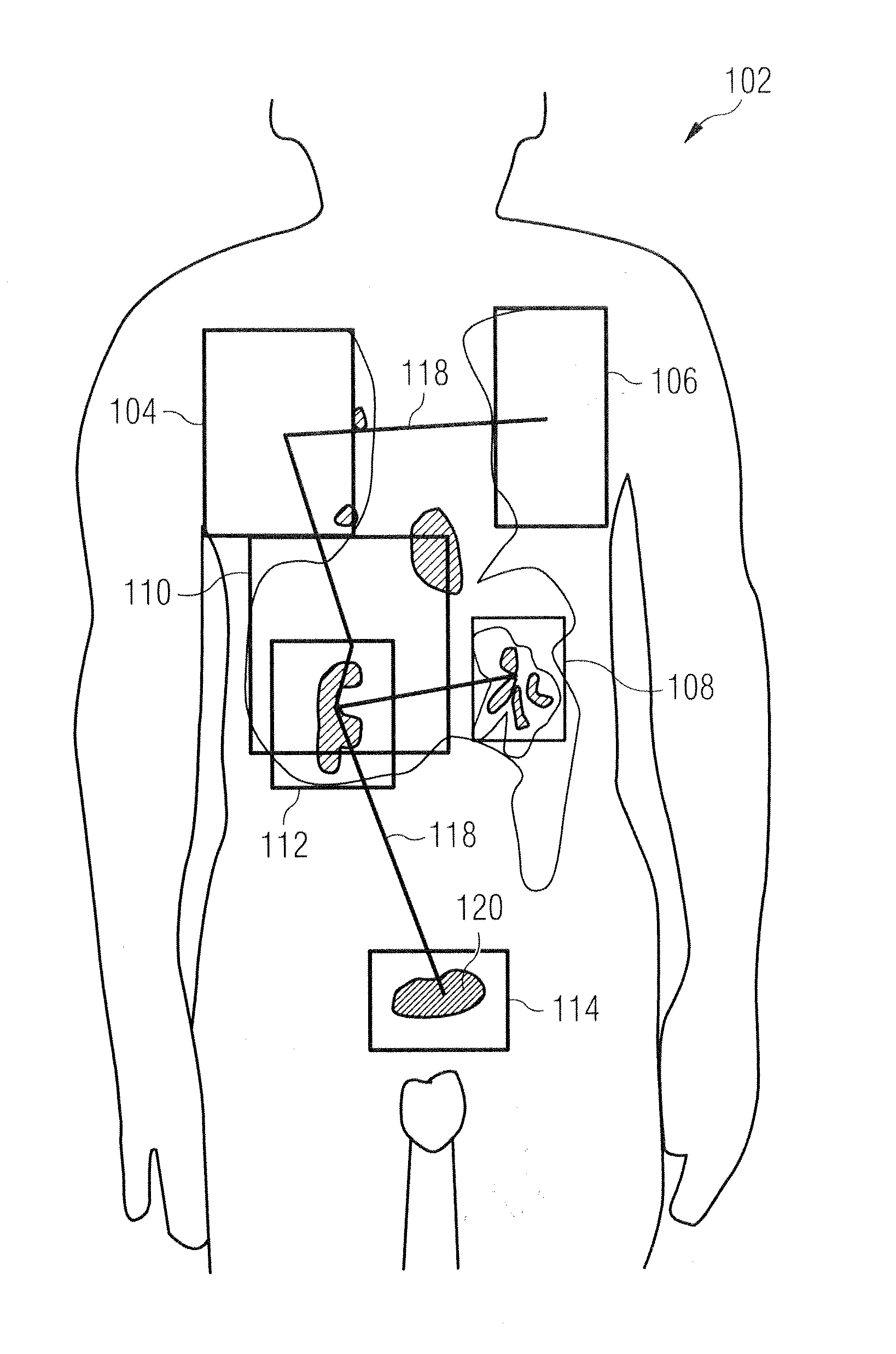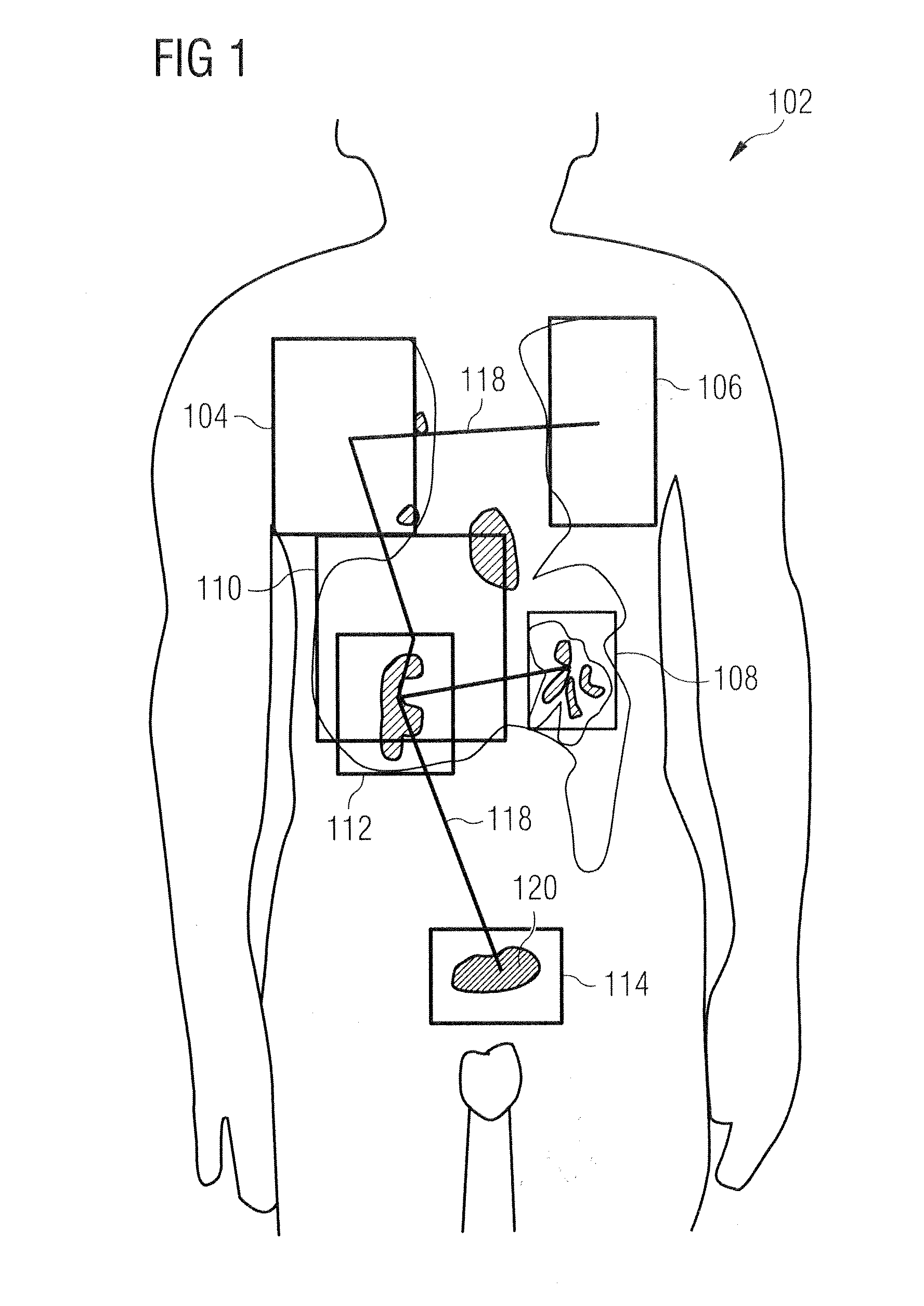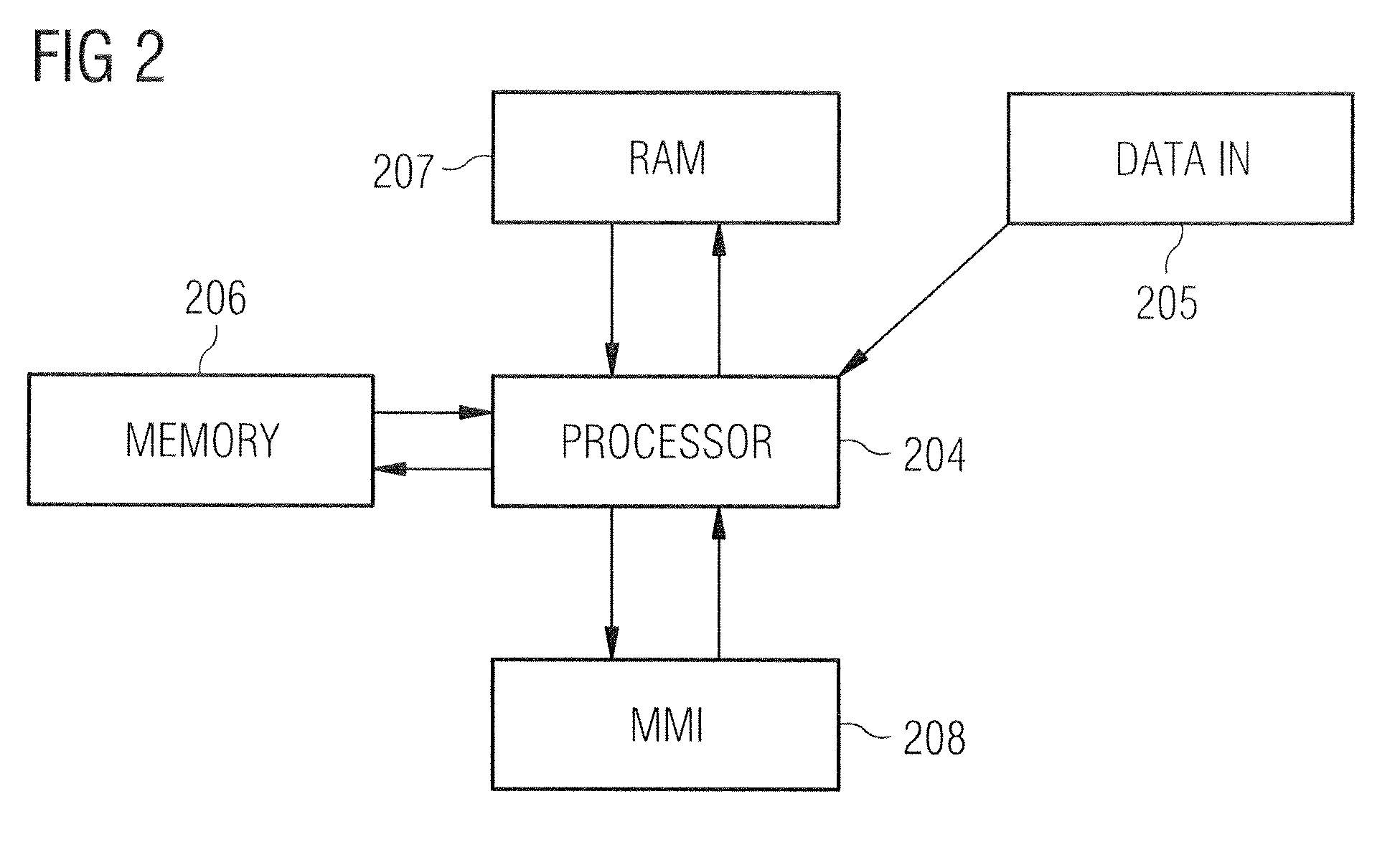Methods and apparatus for registration of medical images
a technology for medical images and registration methods, applied in image analysis, image enhancement, healthcare informatics, etc., can solve problems such as failure of subsequent registration steps, inability to find a good match, and inability to work well with techniques
- Summary
- Abstract
- Description
- Claims
- Application Information
AI Technical Summary
Benefits of technology
Problems solved by technology
Method used
Image
Examples
Embodiment Construction
[0032]When the following terms are used herein, the accompanying definitions can be applied:
[0033]PET—Positron Emission Tomography
[0034]SUV—Standardised Uptake Value
[0035]MRI—Magnetic Resonance Imaging
[0036]ROI—Region of interest
[0037]FOV—Field of View
[0038]Embodiments of the present invention can address problems in the previously considered methods by calculating a similarity function between anatomical atlas labels of the first image and labels of the second image, and registering the two images based on the value of the similarity function, allowing a qualitative measure of the match between the atlases, rather than a simple assumption that the two should fit. Embodiments also allow the use of two different atlases, or image areas, as long as the atlases / image areas overlap to some extent.
[0039]One technical problem addressed by this invention is the initialization and execution of deformable registration for images with large deformations. In one embodiment, the invention is ba...
PUM
 Login to View More
Login to View More Abstract
Description
Claims
Application Information
 Login to View More
Login to View More - R&D
- Intellectual Property
- Life Sciences
- Materials
- Tech Scout
- Unparalleled Data Quality
- Higher Quality Content
- 60% Fewer Hallucinations
Browse by: Latest US Patents, China's latest patents, Technical Efficacy Thesaurus, Application Domain, Technology Topic, Popular Technical Reports.
© 2025 PatSnap. All rights reserved.Legal|Privacy policy|Modern Slavery Act Transparency Statement|Sitemap|About US| Contact US: help@patsnap.com



